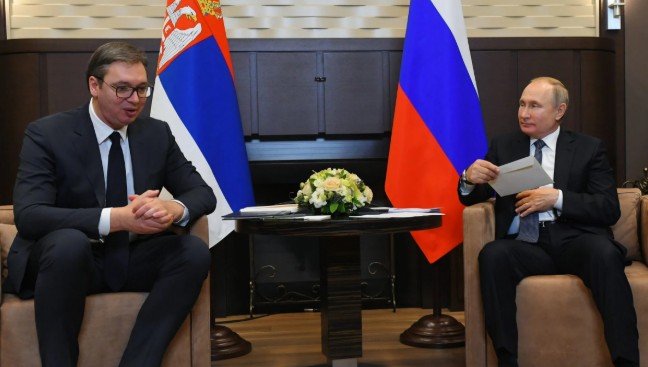Russia Warns West Over NATO Pressure on Serbia

Russia has sharply criticized renewed Western efforts to bring Serbia closer to NATO, warning that such moves could destabilize the Balkans and amount to historical revisionism. In a statement issued on Sunday, Russia’s Ambassador to Belgrade, Alexander Botsan-Kharchenko, accused the West of attempting to erase its past actions in the region particularly the 1999 NATO bombing campaign by pushing Serbia toward the transatlantic alliance.
Speaking to Serbian media, Botsan Kharchenko said,
“The persistent push to involve Serbia in NATO is not about regional security. It is about the West trying to close the page on its own aggression to rewrite history and force Serbia into a framework it has long resisted.”
The ambassador claimed that Serbia’s policy of military neutrality, enshrined in its national doctrine, frustrates NATO member states. He suggested that Western governments interpret Serbia’s reluctance to align with NATO as an obstacle to their broader geopolitical objectives in Eastern Europe.
Historical Tensions Resurface
Serbia remains one of the few European countries outside of NATO, despite longstanding pressure from Western allies. The wounds of the 1999 NATO air campaign carried out without UN Security Council approval remain fresh in Serbian political memory. The campaign, launched to halt human rights abuses in Kosovo, is widely viewed in Serbia and Russia as a violation of sovereignty.
Russia has historically backed Serbia on the issue of Kosovo and opposes any NATO expansion in the Balkans, viewing it as part of a broader containment strategy against Moscow. The Kremlin has increasingly invoked its alliance with Serbia to assert its role as a defender of Slavic and Orthodox Christian nations.
NATO and Serbia: No Formal Alignment
While Serbia participates in NATO’s Partnership for Peace program and conducts joint exercises, it has refused full membership, citing its desire to remain neutral. Serbian President Aleksandar Vučić has repeatedly emphasized that the country will not join any military alliance, instead pursuing a balancing act between the West, Russia, and increasingly, China.
Still, in recent years, Serbia has deepened ties with the EU and Western military frameworks moves seen by Moscow as a gradual shift in orientation. Russia’s warning signals rising unease in the Kremlin as Serbia’s strategic choices continue to attract global attention.
Growing East-West Frictions
The warning comes amid escalating East-West tensions, particularly in Ukraine and across Eastern Europe. NATO’s growing footprint near Russian borders and now in the Balkans is a major flashpoint for Moscow, which considers any military expansion in the region a direct threat.
Analysts suggest that Moscow’s statements are both a warning to Serbia and a message to other non aligned states in the region: that neutrality is not only possible, but preferable in the face of geopolitical pressure.
What’s Next?
With EU accession talks ongoing and tensions over Kosovo flaring periodically, Serbia’s foreign policy path remains closely watched. For now, Belgrade continues to walk a diplomatic tightrope but as pressure mounts from both sides, its balancing act may become increasingly difficult.

phwin25 https://www.phwin25g.net